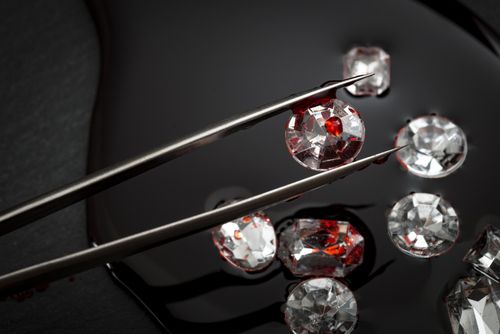 With growing environmental concerns and the availability of ethical buying practices, it’s no surprise that weddings have become more eco-friendly. Couples strive for sustainability, a broad concept that includes reducing consumption, waste, and carbon emissions. If you thought weddings couldn’t get any greener, you’ll be surprised to learn that their eco-conscious approaches can include the purchase of wedding rings. From materials to production and design, green wedding rings embrace sustainability ethics and practices.
With growing environmental concerns and the availability of ethical buying practices, it’s no surprise that weddings have become more eco-friendly. Couples strive for sustainability, a broad concept that includes reducing consumption, waste, and carbon emissions. If you thought weddings couldn’t get any greener, you’ll be surprised to learn that their eco-conscious approaches can include the purchase of wedding rings. From materials to production and design, green wedding rings embrace sustainability ethics and practices.
Beyond Blood Diamonds
No doubt you’ve heard of “blood diamonds,” a byword for gemstones whose sales fund armed conflicts. Time reporter Aryn Baker explains that they’re mined in parts of Africa plagued by war, and forced labor is often used to extract these diamonds. To combat this problem, the Kimberley Process establishes guidelines for the international diamond trade. The goal, as stated in the Kimberley Process FAQ, is to “prevent the flow of conflict diamonds, while helping to protect legitimate trade in rough diamonds.”
Abiding by Kimberley Process guidelines is entirely voluntary, and no international law requires it. Baker mentions loopholes that still allow some conflict diamonds to enter the market. Diamonds that aren’t mined in conflict zones may still not be ethically sourced. Mining companies sometimes still use child labor and don’t follow ethical labor practices. In some of these regions, human rights abuses are rampant. And since many miners aren’t paid unless they find diamonds, their families frequently remain in poverty.
Sustainable From Start to Finish
EcoCult’s Aiden Wicker wanted to choose engagement and wedding rings whose production didn’t harm ecosystems, animals, or people. Since jewelry production involves many people and processes, how can you ensure that you buy items that are ethically sourced? Wicker mentions metals, stones, and labor as three factors to consider when you’re shopping for rings. Recycled metal is an optimal choice, but you can also look for jewelry with Fairmined-certified metals. Based in Colombia, Fairmined certifies gold from small-scale and artisanal mining operations that follow responsible business practices:
- Guaranteed minimum prices
- No child labor or conflict-related mining
- Supports workers’ rights to organize
- Low environmental impacts
- Protects local water supplies
- Provides a safe and healthy workplace
- Promotes gender equality
- Provides stable jobs
The Sustainable Gemstones project website discusses the complexity of gemstone supply chains, so it’s sometimes hard to verify if a stone was ethically sourced. If you’re purchasing rings with gemstones, Wicker suggests looking for lab-created or recycled versions. You can also buy rings from jewelers committed to using ethically sourced materials. Responsibly extracted gems do exist, with blogger Jennifer Nini listing some examples:
- Canadian-certified diamonds
- Recycled diamonds mined before 1940
- Small or family-run mining operations
Every part of the production process involves labor: extraction, cutting and polishing, designing, casting, and setting gemstones. Your best bet is to buy rings made in countries with strong environmental and labor protections. You can also buy from jewelers that only sell rings made by fairly paid workers and in safe working conditions.
Consider Vintage or Heirloom Pieces
When looking for responsibly made rings, don’t forget another great source: antique jewelry. In absence of generous family members gifting you with heirloom pieces, try visiting antique shops and estate sales. Some local jewelers also carry vintage items, so it doesn’t hurt to ask around.
Making Better Choices
Eco-friendly approaches exist for every aspect of wedding planning. With so many details to consider, it’s easy to overlook green approaches when shopping for engagement and wedding rings. Sustainability is much more than “reuse, reduce, recycle,” so don’t forget about ethical concerns like labor practices and fair wages. Recycled and antique rings are good choices, but ethically produced jewelry is another sound option. Tying the knot with responsibly sourced rings reflects both your love for each other and your commitment to a better world.
Add Your Comment